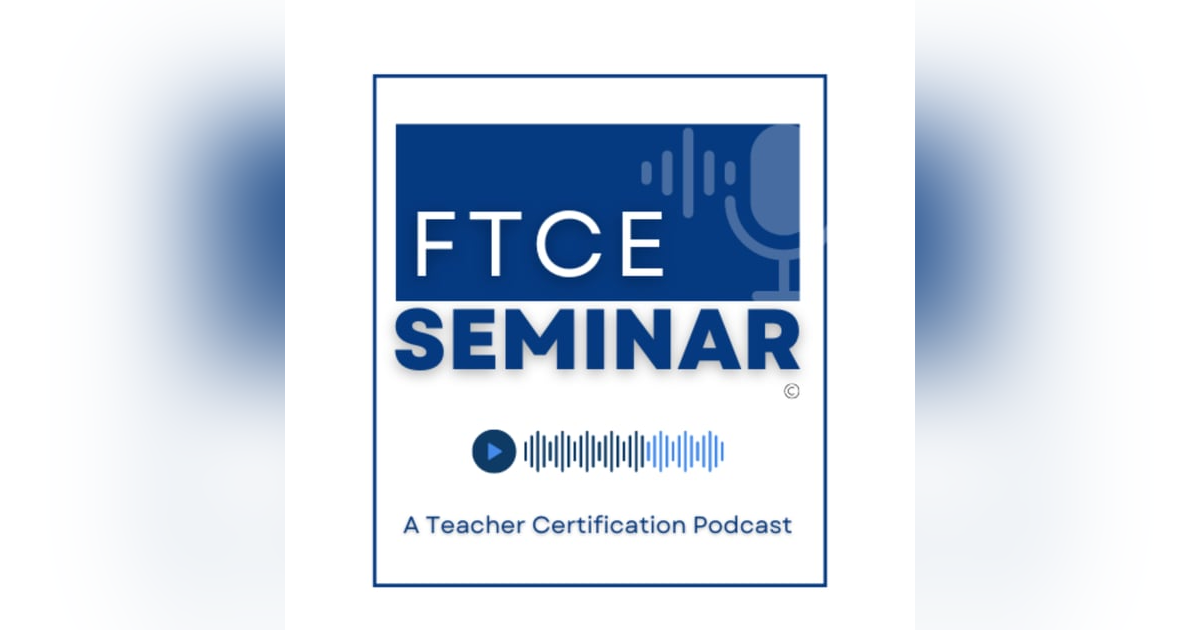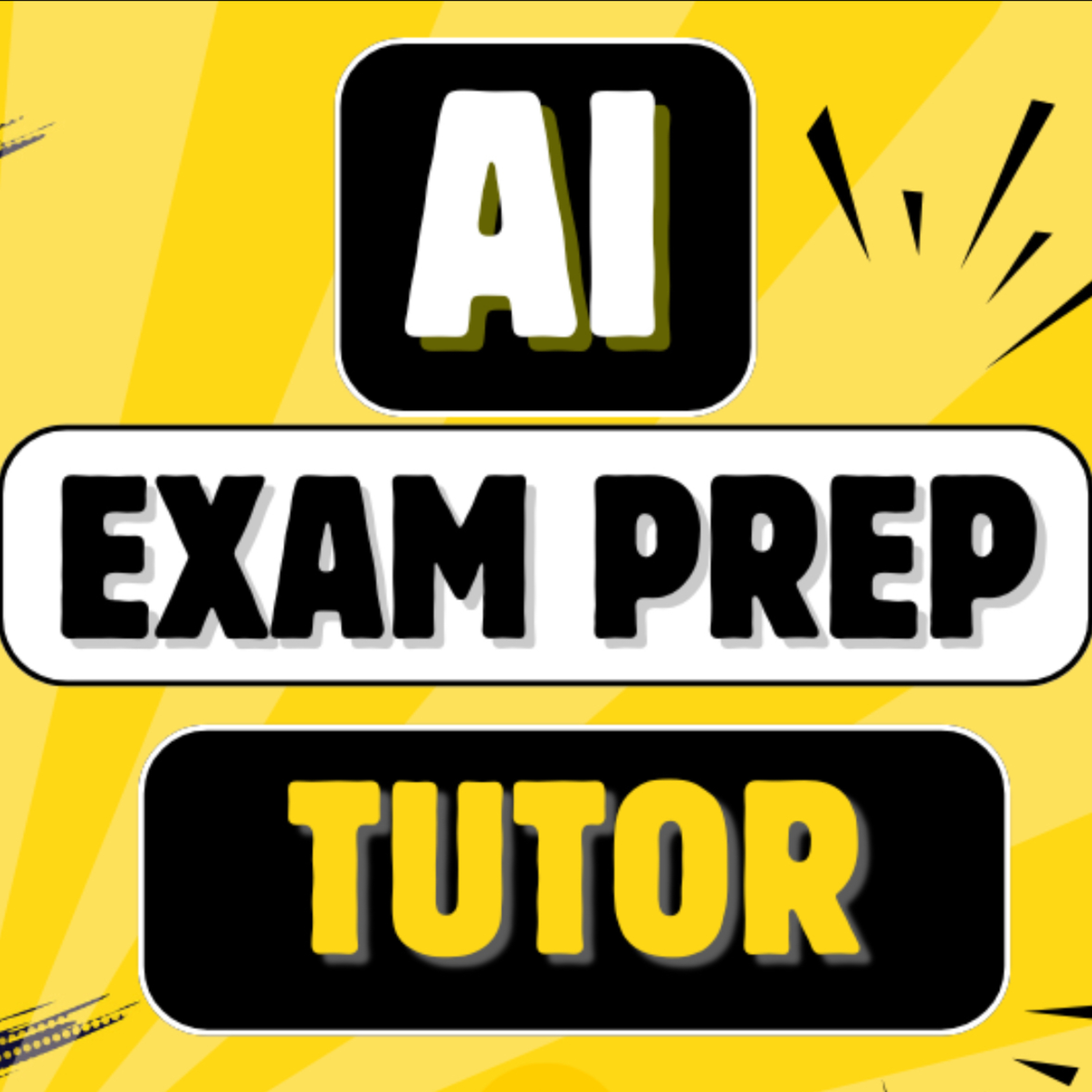E24: FTCE | GK Reading | Making Inferences and Drawing Conclusions
E24: Teacher Certification Podcast | FTCE | Reading | Making Inferences and Drawing Conclusions
In today’s episode, I’ll be talking about the FTCE General Knowledge Reading Subtest. This is part 3 of a multi-series review of what YOU need to know to pass the Reading section of the GK.
Today we are going to talk about making inferences and drawing conclusions based on text evidence.
About FTCE Seminar
How do you PASS the Florida Teacher Certification Exams (FTCE)? On this podcast, we will be discussing concepts from the FTCE Testing Blueprint to help you prepare for the exam. ..Not only is each episode based on the FTCE General Knowledge essay subtest, English Language Skills subtest, Reading subtest, and Mathematics subtest, but I am also using my experience as a FTCE Tutor, 10 year classroom teacher who has passed the FTCE GK Exam, FTCE Professional Education Exam, FTCE Exceptional Student Education Exam, FTCE English 6-12 Exam, FTCE Journalism Exam, and the Reading Endorsement to help you pass and start teaching. ..How do educational podcasts work? Each podcast covers one concept from the FTCE Testing Blueprint. This method is called micro-learning where you listen repeatedly to concepts to reinforce your knowledge and understanding. Try it out! Check it out! And leave your questions and comments below.
-----------------------------------------------
RESOURCES (Free)
💢 FTCE/FELE https://www.fl.nesinc.com/
💢 FTCE Seminar Websitehttps://www.ftceseminar.com/
💢 FTCE Podcasting Study Guides @ TpTStudy Hacks Podcast Guide.
-----------------------------------------------
RESOURCES (For Purchase)
⚡️ FTCE Podcasting Study Guides @ TpT
- FTCE GK Essay Prep
- FTCE GK English Language Skills Prep
- FTCE GK Reading Prep
- FTCE GK Math Prep
⚡️ FTCE Test Prep Books @ Amazon
- General Knowledge Exam https://amzn.to/3QQrCrv
- Professional Education Exam https://amzn.to/4aHwuql
- Elementary Education Exam https://amzn.to/3WN5FNX
- Exceptional Student Education Exam https://amzn.to/3V5CLY0
- *As an Amazon Associate I earn from qualifying purchases made via links which provide a small commission to this channel and accompanying website.
-----------------------------------------------
Support and Donations
💟This podcast and channel are listener supported, contributions can be made at:https://www.buymeacoffee.com/ftceseminar
You can subscribe to the FTCE Seminar Podcast at www.ftceseminar.com
------------------------------------------------
#FTCE #teachercertification #teachers #education #podcast #educationalpodcast #certification #mathprep #professionaleducation #englishprep #essayprep #generalknowledge #teachertraining #exam #test #motivation #study #studyhacks #english #reading #maths #teachereducation #assessment #testtakingstrategies #readings #mathpreparation #englishgrammar #exammotivation #exampreparation #overthinking #practicetests #motivational #testanxiety #readingcomprehension
--- Support this podcast: https://podcasters.spotify.com/pod/show/ftceseminar/support0:00:00
Welcome to episode 24 of FTCE seminar, a teacher certification podcast. I'm your host Mercedes Musto. In today's episode, I'll be talking about the FTCE general knowledge reading subtest. This is part three of a multi-series review of what you need to know to pass the reading section of the GK.
0:00:21
Today, we're gonna talk about making inferences and drawing conclusions based on text evidence. That's right, making inferences. What does that mean? Well, you are about to find out. So let's get started. Concept one, making inferences and drawing conclusions. According to readingrockets.org,
0:00:43
we come to understand some things literally, you know, like facts, main ideas, and supporting details. But there are other times when we have to draw conclusions based on our personal experiences and the knowledge at hand. This is called making inferences. We reach conclusions based on evidence and reasoning. Today, we're gonna learn how to make inferences
0:01:09
and draw conclusions when information is implied and not directly stated. I call this, you know, reading in between the lines. The good news is that readingrockets.org calls inferential thinking a skill that can be developed with practice. So let's practice. Let's take this next example for instance.
0:01:32
Be thinking to yourself, what conclusions can I draw from the following statement? A lifeguard scanned the coastline while two children laughed and splashed each other with salty waters. So where is this? Listen again. A lifeguard scanned the coastline while two children laughed and splashed each other in the salty waters. Is it A, a pool, B, the beach, or C, a park? Okay, like I know it's not a park and you know that too. But if you said beach, you're so correct.
0:02:06
Because ask yourself, how did you come to that conclusion? Because the word beach was never mentioned, not even once. Here's a good time for you to learn about clues. Listen to the clue words in this sentence. A lifeguard, clue, scanned the coastline, another clue, while two children laughed and splashed each other in the salty waters. Last clue, salty waters.
0:02:31
Okay, let's try another one. What conclusions can I draw? Listen carefully. On earth, the bulky suit was heavy and unmanageable, but up here it was weightless. Stories of the planet resembling a blue and green marble were true. So where is this person?
0:02:50
All right, listen for those clue words. On Earth, the bulky suit was heavy and unmanageable, but up here it was weightless. Stories of the planet resembling a blue and green marble were true. Is this person A, deep beneath the ocean, B, way up in space, or C, hanging out at NASA? If you said way up in space, you're so correct. And you're really getting good at this,
0:03:16
but ask yourself, how did you come to that conclusion? Because the word space was never ever mentioned, nah, never, ever. The clue words for that statement were weightless and planet. So now that you're all warmed up and really understand what it means to make inferences and draw conclusions from the text,
0:03:37
let's try a more difficult example. Listen carefully. Tony sighed and looked around. Where were his car keys? He didn't want to be late again. He scanned the room. There was a pile of clothes, books everywhere, scattered papers on his desk,
0:03:55
and a bunch of dirty dishes in the sink. His car keys could be anywhere, literally. After listening to that passage, we can infer about Tony or even the whole scenario. Hmm, let's break it down. Tony sighed and looked around. Where were his car keys? He didn't want to be late again. Now from these sentences, we can infer that Tony might be frustrated since he sighed and that he might be late often since the statement said he didn't want to be late again. Next, he scanned the room. There was a pile of clothes, books everywhere,
0:04:34
scattered papers on his desk and a bunch of dirty dishes in the sink. His car keys could be anywhere, literally. The description of Tony's room tells us that it's messy and disorganized. We can infer from phrases like pile of clothes, scattered papers, and dirty dishes.
0:04:54
So let's review.
0:04:55
We know that the key to making inferences or drawing conclusions is to use our experience along with text evidence to read in between the lines for possible implied meaning. Let's do a pop quiz called, what sport is that? Okay, ready? Number one, the crowd roared as three players ran home. What sport is that? Number two, the goalie dove on the green grass and blocked the ball. What sport is that? And three, all 10 pins were knocked down when he rolled the ball down the alley. Sport? Okay, if you answered
0:05:25
baseball, soccer, and bowling, then you drew the right conclusions and made the correct inferences. I told you you got this, you got this. For more practice with reading strategies visit ftceseminar.com to study for the test. The important thing is to start studying and start studying today so you can pass the teacher certification exam. Well, what are you waiting for? Check us out on YouTube at FTCE seminar and start studying today. This podcast was recorded at the Pickens Multimedia Studio at the University of West Florida. This is your host Mercedes Musto. Join me again on FTCE seminar, a teacher certification podcast so you can
0:06:11
FTCE seminar, a teacher certification podcast so you can pass the FTCE.
Transcribed with Cockatoo














